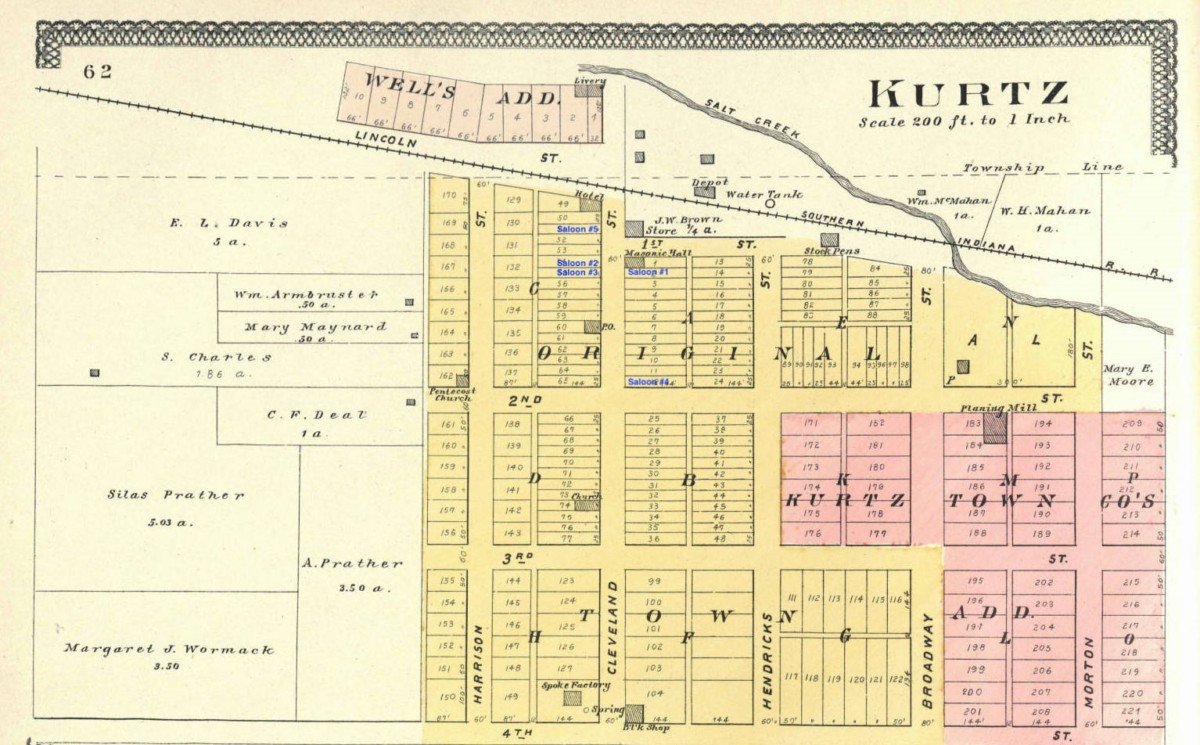
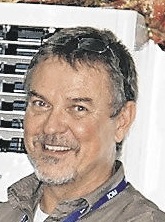
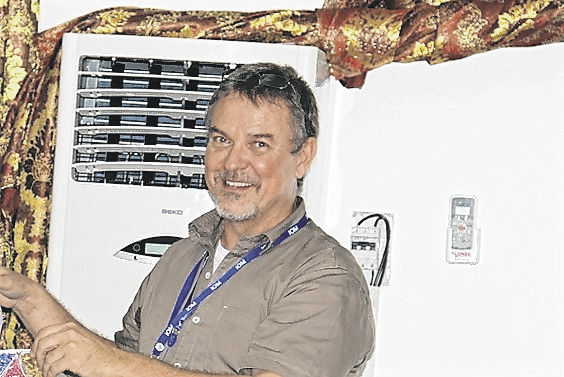
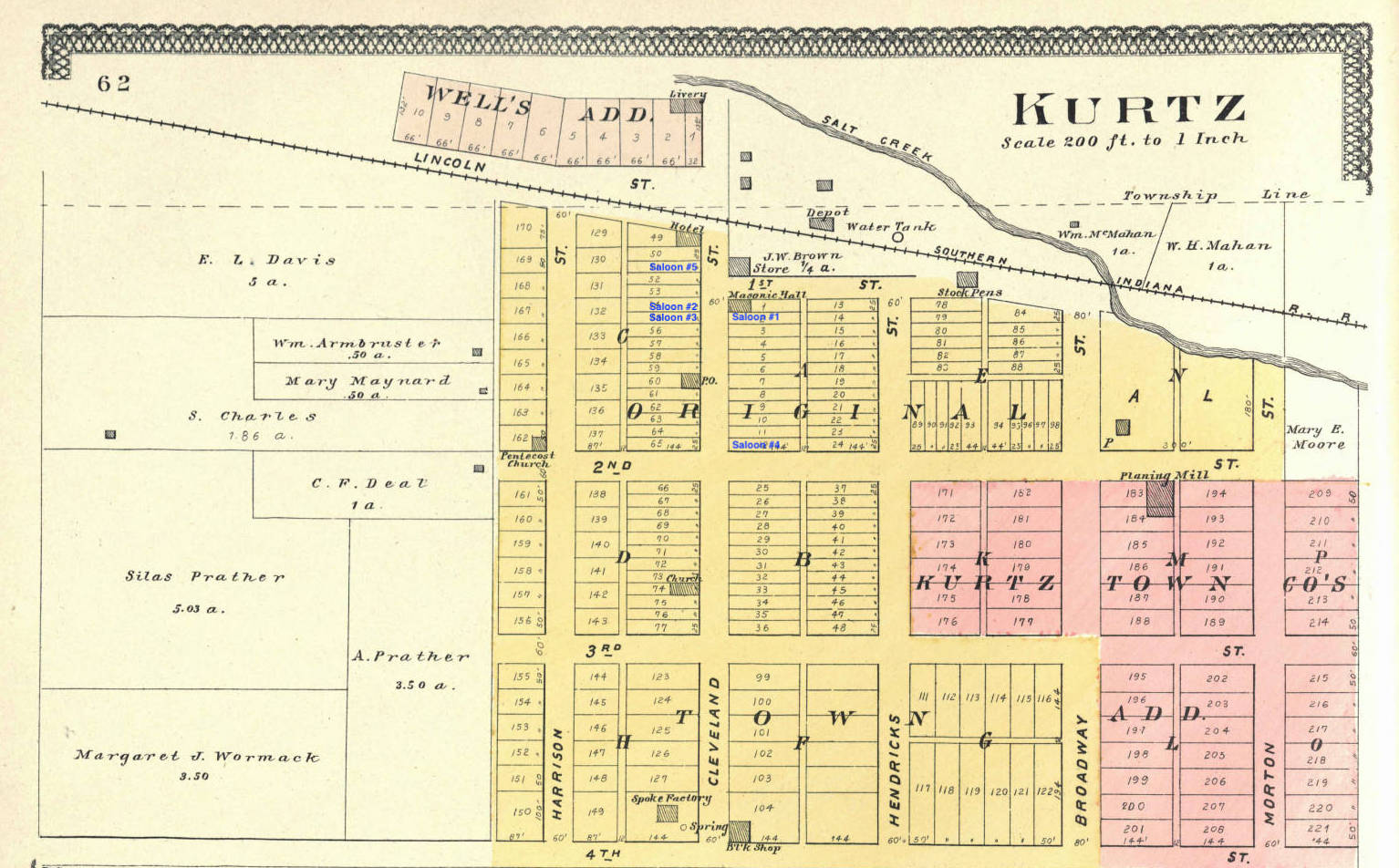
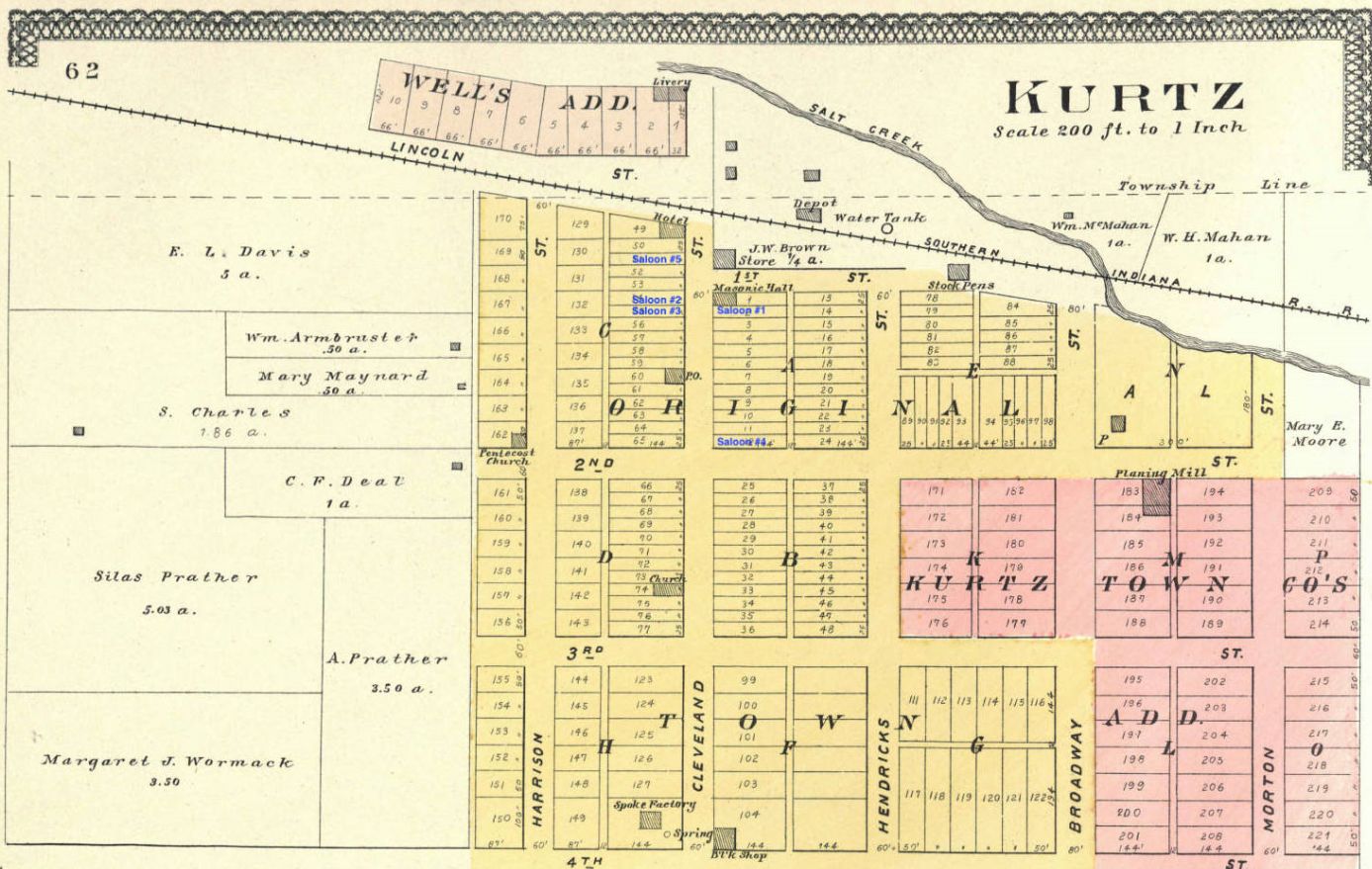
The state of Indiana was in the throes of a temperance war from the late 1800s that culminated in a statewide prohibition in 1918.
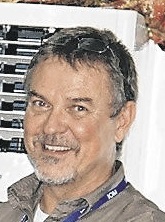
The saloon feuds played out in a particularly vicious manner in Owen Township, pitting neighbor against neighbor, relative against relative.
In 1889, the year that Kurtz became a town, Thomas Callahan opened a saloon on Cleveland Street in December 1889 (see Saloon No. 1 on map).
Based on legal precedent dating back to the days of William Henry Harrison in 1805, liquor licenses were issued for only a duration of one year, requiring applicants to reapply each year. In March 1891, almost directly across the street, Peter Wheeler opened a second saloon in the lower room of two-story frame (see Saloon No. 2).
In March 1892, Callahan shot and killed railroad worker Elija Pressnell over a 15-cent unsettled bar tab. Callahan was found guilty and sentenced to prison in Michigan City. Five years later in May 1897, Callahan was pardoned — likely for health reasons — and died the following day.
The saloon murder, however, would remain in the collective consciousness of the citizens of Kurtz and held up evidence of the social ills of alcohol.
The Nicholson Law of 1895 required applicants to describe the room where they wished to sell the alcohol and introduced a process for saloon opponents to defeat the application if more than half of registered voters (all men) signed a petition, or remonstrance.
Thirty-year-old Frank Lane and 20-year-old William Prather opened a slightly larger saloon on Cleveland Street in September 1898 (see Saloon No. 3). The new 20-by-40-foot saloon had double glass doors at the front with windows on either side. The bar had permission to sell tobacco and cigars in addition to “spirituous, vinous and malt liquors.”
Temperance movements — supported and funded by churches, particularly the Methodist church — across the state were gaining momentum. The Indiana Anti-Saloon League formed that same year and would go on to become a political force that eventually helped make the state dry.
This momentum surfaced in the form of rhetoric in the Jackson County papers. In December 1898, the Brownstown Banner wrote of Kurtz, “It seems of late a very common thing to see drunk men on our streets. It is a disgrace to our little village.”
Frank Lane applied for a fresh liquor license but was denied in March 1899 on a technicality.
Saloon keeping seemed to flow through Frank Lane’s blood and may have contributed to his financial, personal and public struggles. However, Lane rallied friends and family around the perceived right to deal in alcohol and run saloons for five more years.
Prather reopened the saloon in March 1899, and Lane tended bar. In July, Thorton Lane, Frank’s brother, applied for a saloon license just outside of Norman only to be defeated when hotel keeper James Prow and Landon Fish of Norman raised a petition with 195 signatures. Both Prow and Fish were neighbors of the Lanes.
About this time, freshly divorced Frank Lane moved back in with his parents in Norman, just two doors down from Fish and next door to Prow.
In August 1899, Frank applied for a license. However, John LeFevre led a remonstrance with 269 names that denied the license. The Republican correspondent touted, “Frank Lane is driving a team now instead of keeping a saloon.”
Frank’s uncles, James and Enoch Clampitt, applied for saloon licenses in Norman, while Frank’s friend, Peter Wheeler, applied for Kurtz. Remonstrances killed them all.
In March 1900, the Kurtz correspondent wrote, “Saloons are a thing of the past in Kurtz. One murder has been committed in Kurtz … by a saloon keeper …”
As a result, many citizens turned to tangle-foot or homemade liquor. But the saloon feuds in Owen Township were far from over.
Craig Davis, who was born in Seymour and graduated from Brownstown Central, currently lives in Tegucigalpa, Honduras, and works for a U.S. government contractor on school-based violence prevention. He is the author of “The Middle East for Dummies” and is conducting research for a genealogy and social history book in Kurtz and Freetown.
